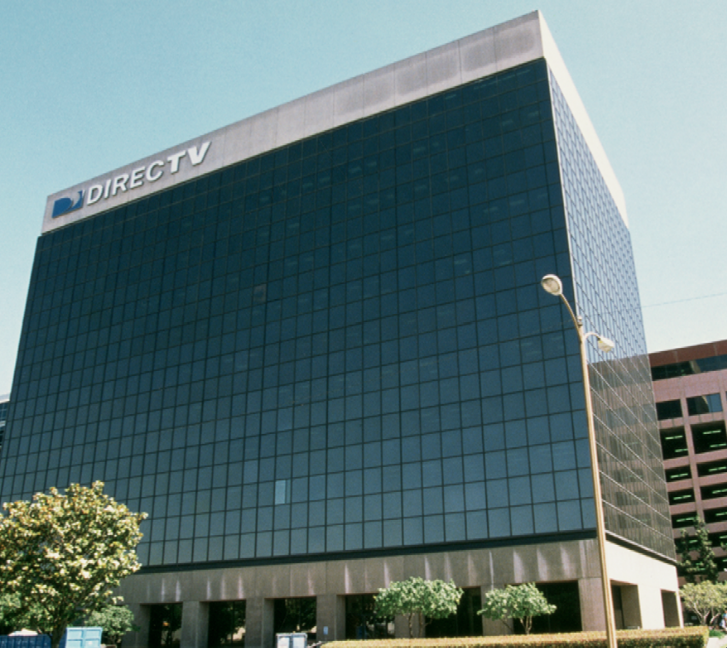 The satellite TV company DIRECTV is in the process, apparently successful so far, of improving the performance and the turnover of front-line employees, partly through the use of an hour-long assessment. That online tool is meant to find out who’s most interested in a customer service or dish installation job, give candidates a good feel for what the work would be like if they get the job, see who’s got the qualities top employees have, and get people more excited about the roles and the company.
The satellite TV company DIRECTV is in the process, apparently successful so far, of improving the performance and the turnover of front-line employees, partly through the use of an hour-long assessment. That online tool is meant to find out who’s most interested in a customer service or dish installation job, give candidates a good feel for what the work would be like if they get the job, see who’s got the qualities top employees have, and get people more excited about the roles and the company.
Linda Simon is the head of talent management. She started a couple years ago. About eight months before that, a new CEO and then a new HR head had come in. Business leaders and the HR team started looking at the front-line roles — they were all on board — asking themselves if they’re really getting the best people, and whether they can do something about the turnover so common in customer-service, phone-surgically-attached-to-your-ear sorts of jobs. The company was also thinking about the people who come install your satellite TV; in July 2008, it had brought those jobs in house.
In the fall of 2010, it looked at adding a new screen or assessment tool to its hiring process.
The company’s management had bought into the idea of improving the screening process. The list was narrowed to three vendors. Each pitched a proposal, and one was picked.
This gets us into 2011, when several months were spent building the assessment. The vendor DIRECTV had chosen was Shaker Consulting Group, which you might remember from the assessment it had built for KPMG.
DIRECTV’s tool asks about things like situational judgment, problem-solving, work style, and work history. It’s supposed to give a realistic preview of a job at the company. You might be asked how to handle a situation where you’re overloaded with work, or when you come across a customer who doesn’t speak English.
I took the test, and it’s both fun and interesting, presenting situations (like encountering a wasp’s nest) that I haven’t thought about since those frigid days I was delivering the daily newspaper at 5:30 a.m. in Columbus, Ohio.
Depending on the job (i.e. customer service or installation) the assessment predicts things like speed of installation, as well as first-call resolution (does the DIRECTV person handle my TV issue, or do I have to bug them again?). Shaker had talked to DIRECTV’s employees, particularly honing in on the ones managers rated the best, to figure out what success looked like, in order to build the assessment.
It was live toward the end of 2011 and beginning of 2012, with versions for the call-center people as well as for the field service people. It’s required. So if you go apply for a job, as I did for a technical installer sort of job, you get a note that says “Your application will not be processed until the tryout has been completed — we encourage you to complete it as soon as possible so you may be considered further.”
If you don’t take the assessment, DIRECTV will contact you and ask you to take it. If you still don’t do it, says Simon, “we don’t feel you’re really interested in the role.”

Recruiters get a report showing how people did on various competencies that are part of the assessment, like conscientiousness, and then do a phone screen with candidates. After that, they pass along some candidates to hiring managers. Simon’s view — emphatic view — is that the tool is one piece of a puzzle and is not a way to “screen out” people; in fact, average scores may be perfectly OK, but do help recruiters and later managers probe into areas that were more average than strong. “An assessment can only take you so far with the process,” she says. Basic screening questions, not the more complex job preview, might actually be what rules out an applicant: Can someone take a DIRECTV job given their schedule? Can they lift enough weight? Will they be OK with a background check?
Simon says she’s still analyzing the results of this new screen, but the early returns are positive. Last summer, the talent department, to get more metric-based information than anecdotes, talked to hiring managers about how things were going. The upshot was that there was about a 50% decrease in the number of call-center employees leaving their jobs within the first month. Simon notes that not all of this is necessarily due to the assessment.
As far as the technical people, the installation people — turnover probably hasn’t changed as sharply for them (nor is turnover there as much of a concern as it is for the call-center workforce). But Simon’s sense is that for both jobs, the quality of people being passed along to hiring managers, and thus ultimately hired, is up. Approximately 15% fewer names are being passed along to managers after the recruiter screen than before the assessment.
What she also likes is that it’s jazzing people up about the company’s jobs. There’s a comment section with the assessment where you can write what you thought about it, and some people have said it really helps them understand the roles better. “It starts us off on a really great foot with candidates,” says Simon.
I asked her about people deciding they don’t want to deal with this assessment, and becoming lost candidates for DIRECTV. “That’s one of the myths out there,” she says. Over 75% of people who apply for jobs at the company are taking the assessment, and as mentioned earlier, if they aren’t, she’s not so into them anyhow. “It helps screen out people who aren’t as serious,” she says. “If they can’t invest an hour, they may not be the person we want.”